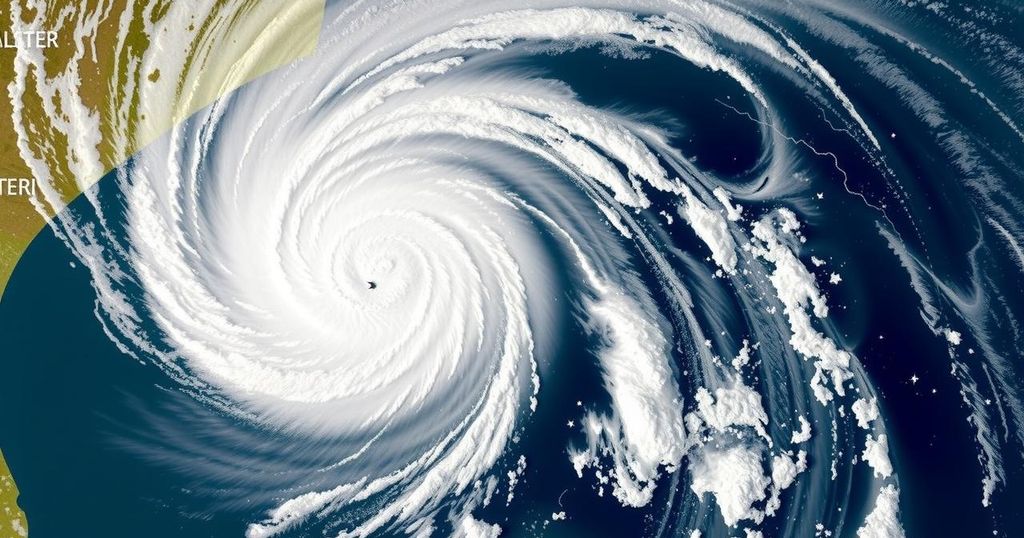Impact of Tropical Cyclone Chido on Southern Africa: Flash Update No. 5

Tropical Cyclone Chido has affected over 274,000 people in Mozambique, Malawi, and the Comoros, resulting in significant fatalities and damage to homes and infrastructure. The cyclone made landfall on 15 December 2024 and has since weakened as it moved inland. Emergency teams are actively providing assistance in the hardest-hit areas while multi-sector assessments continue to address urgent humanitarian needs.
As of 17 December 2024, Tropical Cyclone Chido has severely impacted Southern Africa, affecting over 274,000 individuals across Mozambique, Malawi, and the Comoros. Reports indicate that the cyclone first struck Mozambique on 15 December with winds exceeding 260 km/h, leading to extensive destruction, including 35,000 homes damaged and 34 fatalities. After weakening into a depression, Chido has transitioned inland through Tete Province and is anticipated to dissipate near Zimbabwe. In Malawi, at least 34,741 individuals have been affected across 14 districts, with a reported death toll of seven. The Comoros have declared a week of mourning, numbering over 64,000 affected, with significant agricultural loss particularly in Anjouan. Notably, Mayotte experienced unprecedented cyclone impacts, resulting in 21 fatalities and widespread infrastructural damage. The cyclone’s effects extend beyond immediate damage, with ongoing assessments necessary for comprehensive humanitarian responses.
Emergency teams are actively deployed for urgent aid, while the situation is being monitored closely amid ongoing multi-sector assessments across the hardest-hit areas.
Tropical Cyclone Chido developed in early December 2024 in the southeastern Indian Ocean and made landfall on 15 December in Mozambique’s Cabo Delgado Province. Initial predictions indicated potential catastrophic impacts due to the cyclone’s strength, which reached Category 4 status at its peak. Mozambique, Malawi, the Comoros, and Mayotte faced extensive damage, particularly infrastructure destruction and significant disruption to services like electricity, transportation, and healthcare. The subsequent humanitarian response is crucial in mitigating the long-term effects on these affected communities.
In conclusion, Tropical Cyclone Chido has caused widespread devastation across Southern Africa with over 274,000 individuals affected in Mozambique, Malawi, and the Comoros. Ongoing assessments are essential as emergency teams provide relief efforts to address immediate needs and long-term recovery challenges. The cyclone has drawn attention to vulnerabilities in affected regions, highlighting the critical need for continued monitoring and support in the aftermath of such natural disasters.
Original Source: reliefweb.int







